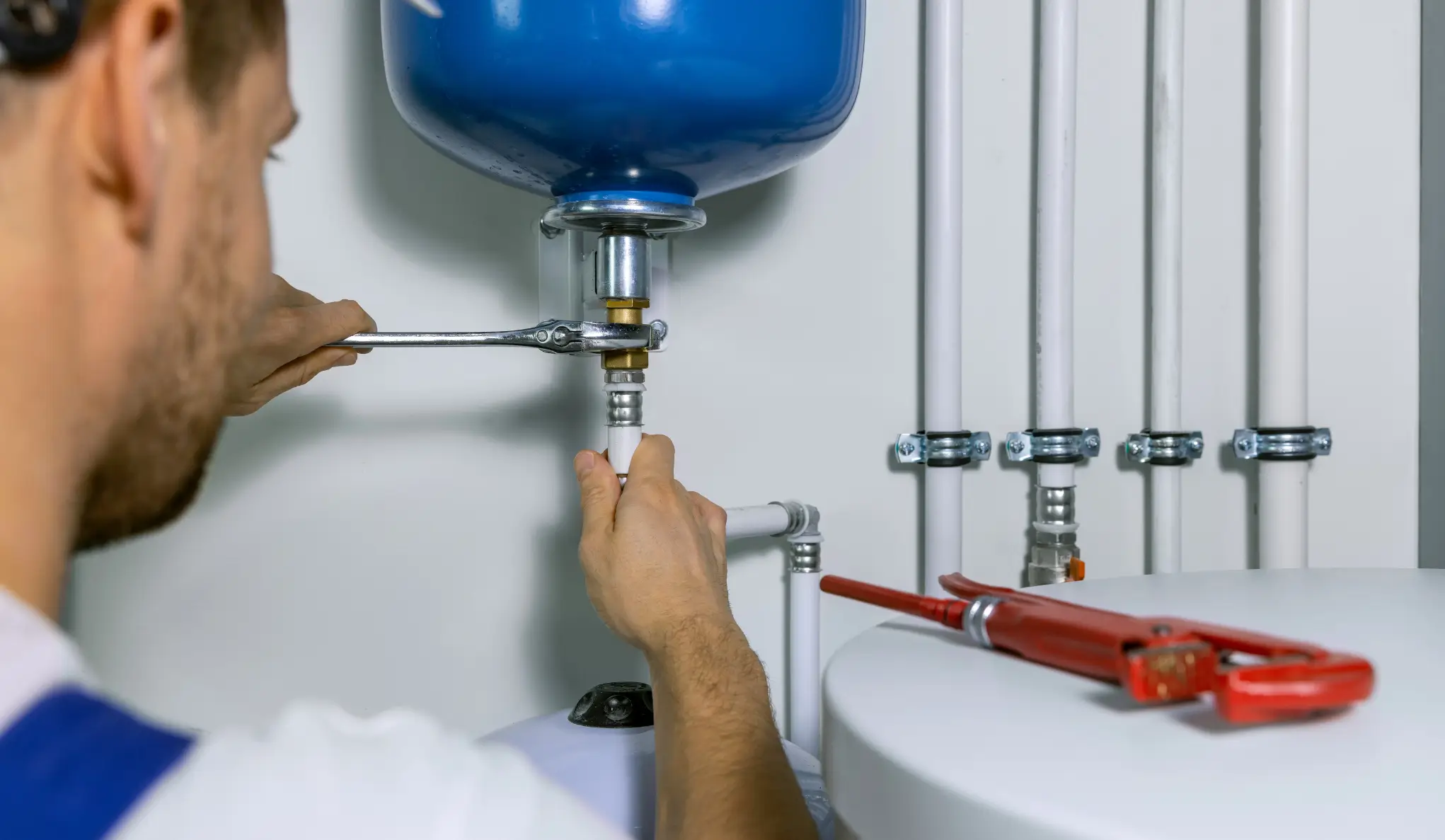Great Questions!
An expansion tank is a small tank used in closed heating, cooling, and hot water systems to absorb the excess pressure created by the expansion of water as it heats up. It typically consists of two compartments separated by a diaphragm or bladder: one filled with air and the other with water from the system. You need an expansion tank to absorb excess pressure from thermal expansion in closed heating and cooling systems, preventing damage and ensuring safe, efficient operation.
So…..why do I need to replace an expansion tank?
If you are being told that your expansion tank has “seized up” that means that it is no longer functioning properly, and there are risks of leaving it as is.
Replacing expansion tanks is important for several reasons, particularly for maintaining the efficiency and safety of heating systems, cooling systems, and hot water systems. Here are some key reasons why it’s important to replace expansion tanks:
1. Preventing System Damage
Pressure Regulation: Expansion tanks absorb excess pressure caused by the thermal expansion of water as it heats up. If an expansion tank is faulty or undersized, the increased pressure can damage the boiler, pipes, and other components of the system.
Protecting Components: Consistently high pressure can cause leaks, burst pipes, and damage to the heating system’s valves, pumps, and other components, leading to costly repairs.
2. Ensuring Safety
Preventing Explosions: Without a functioning expansion tank, the pressure in the system can become dangerously high, increasing the risk of explosions or severe leaks.
Avoiding Water Damage: Faulty expansion tanks can lead to leaks, which can cause significant water damage to the property.
3. Maintaining Efficiency
Optimal Performance: A properly functioning expansion tank helps maintain the correct pressure levels within the system, ensuring that it operates efficiently. This can lead to better heating performance and energy efficiency.
Prolonging System Life: Regularly replacing expansion tanks as needed can extend the overall lifespan of the heating system by reducing stress on the system components.
4. Cost Savings
Avoiding Emergency Repairs: Regular maintenance and timely replacement of expansion tanks can prevent unexpected failures, which often result in expensive emergency repairs.
Energy Savings: Efficient pressure regulation helps the heating or cooling system operate more efficiently, reducing energy consumption and lowering utility bills.
5. Compliance with Regulations
Meeting Codes and Standards: Many building codes and regulations require proper pressure management in heating and cooling systems. Ensuring that expansion tanks are in good condition helps meet these regulatory requirements.
6. Preventing Air Lock Issues
Air Management: Expansion tanks help in managing the air within the heating system. A failing expansion tank can cause air to be trapped in the system, leading to air lock issues that can disrupt the flow of water and reduce the efficiency of the system.
Conclusion
Replacing expansion tanks as part of regular maintenance ensures the safety, efficiency, and longevity of heating, cooling, and hot water systems. It helps prevent costly repairs, improves system performance, and adheres to safety standards, ultimately providing peace of mind for homeowners and property managers.



